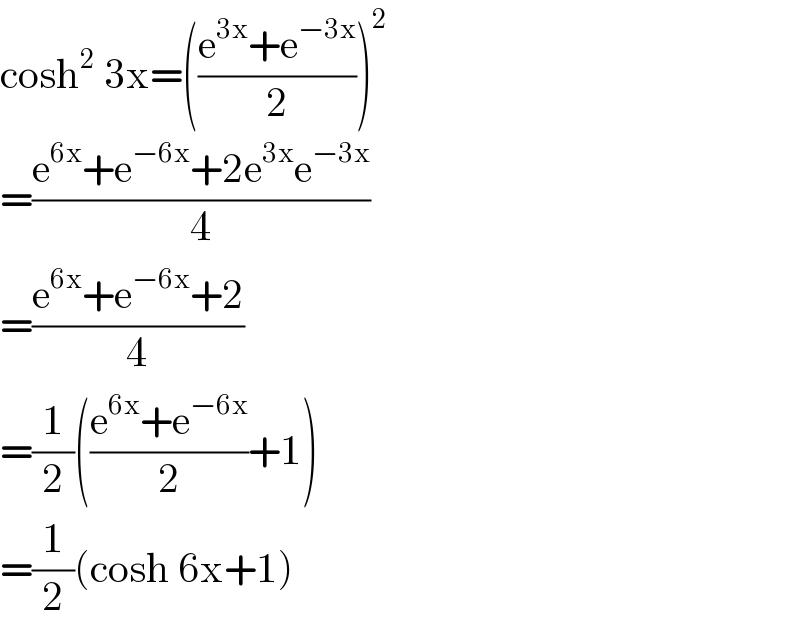
Question and Answers Forum
Question Number 17279 by tawa tawa last updated on 03/Jul/17
![Is cosh^2 (3x) = (1/2)[1 + cos(6x)] ??????](Q17279.png)
Commented by mrW1 last updated on 03/Jul/17

Commented by tawa tawa last updated on 03/Jul/17

Commented by tawa tawa last updated on 03/Jul/17

| ||
Question and Answers Forum | ||
Question Number 17279 by tawa tawa last updated on 03/Jul/17 | ||
![Is cosh^2 (3x) = (1/2)[1 + cos(6x)] ??????](Q17279.png) | ||
Commented by mrW1 last updated on 03/Jul/17 | ||
 | ||
Commented by tawa tawa last updated on 03/Jul/17 | ||
 | ||
Commented by tawa tawa last updated on 03/Jul/17 | ||
 | ||